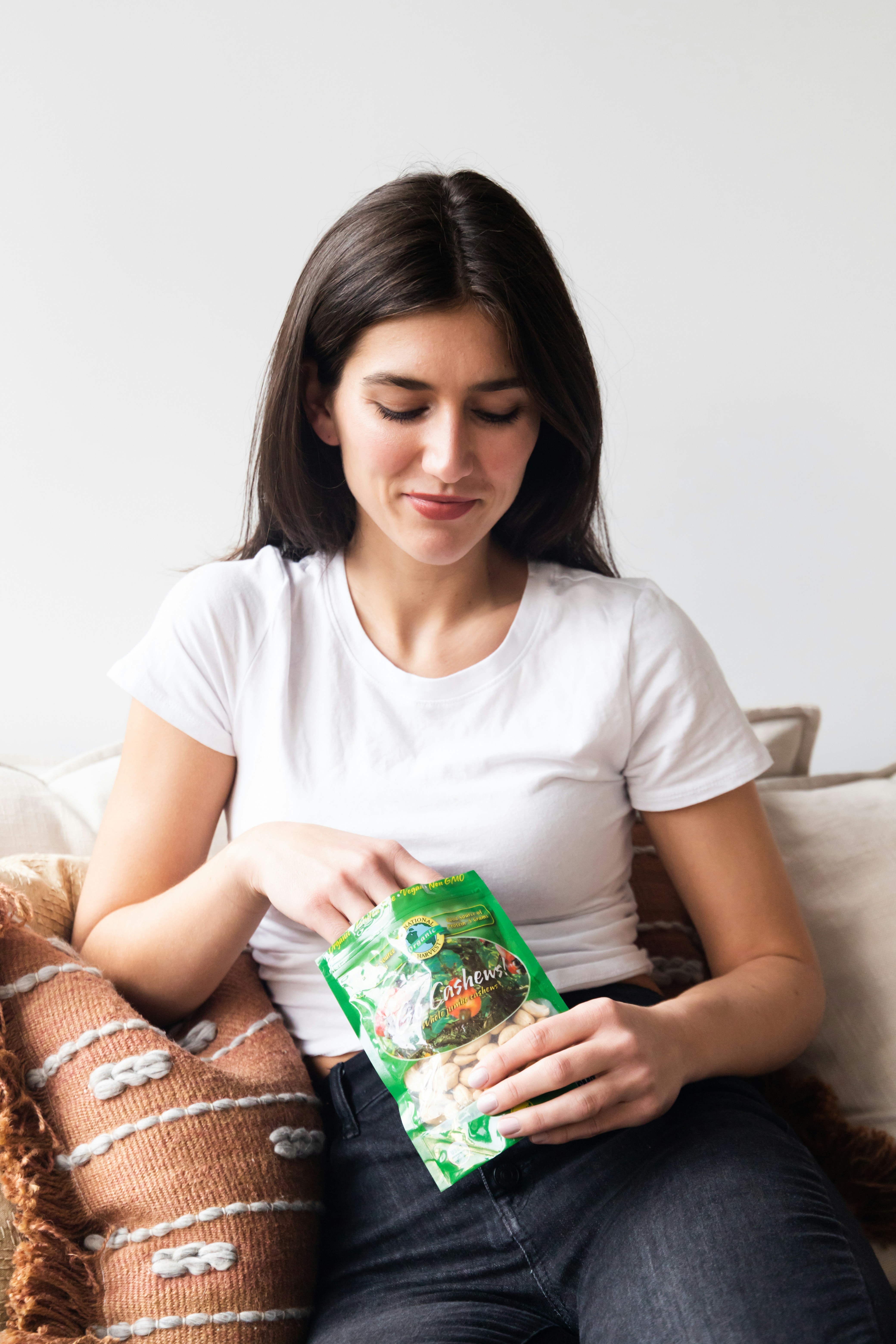Have you ever found yourself on a quest for a healthy snack only to be overwhelmed by the vast sea of dietary restrictions, particularly if you’re trying to keep your oxalate levels in check? It can be quite a task, can’t it? The importance of managing oxalate intake for individuals with specific health concerns is no small matter. Whether you’re prone to kidney stones or dealing with an issue like hyperoxaluria, understanding how to incorporate low-oxalate options into your diet can significantly contribute to your wellbeing. Let’s guide you through practical, delicious, and straightforward snack ideas that align with a low-oxalate diet while keeping things flavorful and exciting.
Understanding Oxalates and Their Impact
Before we embark on this snack journey, let’s take a moment to unpack what oxalates are and why they might matter to you. Oxalates are naturally occurring compounds found in many foods and even in your body. In moderate amounts, oxalates usually don’t cause problems for most people. However, higher levels may contribute to the formation of kidney stones, especially if your body tends to absorb oxalate too efficiently or your kidneys don’t excrete them effectively.
Why Consider a Low-Oxalate Diet?
You might wonder why reducing oxalate intake is essential or even necessary. For some, dietary oxalates play a significant role in health concerns. The idea behind a low-oxalate diet is to limit the amount of oxalates entering your body, thereby reducing the risk of stone formation and mitigating other associated health issues. While not everyone needs to follow a low-oxalate diet, it’s a crucial step for those targeting stone prevention or dealing with conditions such as Primary Hyperoxaluria.
Key Principles for Low-Oxalate Snacking
Let’s chat about how you can approach snacking within the confines of a low-oxalate diet. First, understanding which foods are low in oxalates is vital. Knowledge empowers you to make choices that align with your health needs without feeling deprived.
General Guidelines
To stay on track, keep these general guidelines at the forefront:
- Moderation Is Key: Rather than eliminating certain foods entirely, aim to consume them in moderation. This approach maintains balance and adherence to a diverse diet.
- Hydration: Always remember that drinking plenty of water can support your efforts to manage oxalate levels effectively by diluting urine and potentially minimizing stone risk.
- Calcium Intake: Considering the pairing of calcium-rich foods with oxalate-rich items can help reduce oxalate absorption in your bloodstream. That said, keep calcium sources low-oxalate too!
Simple Low-Oxalate Snack Ideas
With principles established, let’s turn the spotlight onto some simple low-oxalate snack ideas worth trying. These snacks are convenient, tasty, and crafted with your health goals in mind.
Fresh Fruits and Vegetables
Fresh, vibrant produce can be your go-to when searching for satisfying, healthy snacks. Not all fruits and vegetables have high oxalate content, so you’ll have a variety of choices.
Fruits:
- Apples and Pears: Crisp and juicy, these make for a delightful snack alone or sliced with yogurt.
- Grapes: A handful provides natural sweetness without oxalate concerns.
- Melons: Watermelon, cantaloupe, and honeydew are refreshing and hydrating options.
Vegetables:
- Cucumbers: Enjoy with or without their peel for a hydrating snack.
- Cauliflower: Raw or steamed, this versatile veggie can be used in numerous snack recipes.
- Bell Peppers: Crunchy bell peppers offer a burst of color and flavor with minimal oxalates.
Dairy-Based Snacks
Dairy products can offer calcium, which as noted earlier, is beneficial in binding oxalates. They’re creamy, satisfying, and add variety to your snack repertoire.
- Yogurt: Choose plain yogurt or flavor it naturally with fresh fruits or a drizzle of honey.
- Cheese cubes: A small portion of cheese (like Cheddar or Swiss) accompanied by low-oxalate fruits or crackers makes a quick, protein-rich snack.
Nuts and Seeds Alternatives
While some nuts and seeds like almonds and sesame seeds are high in oxalates, alternatives exist that fall into the low-oxalate category.
- Macadamia Nuts and Cashews: These have lower oxalate levels compared to their counterparts and are rich in healthy fats.
- Chia Seeds: While often consumed sparingly, chia seeds are lower in oxalates and can be added to yogurts or smoothies for added texture and nutrients.
Baked Goods and Breads
It’s fair to crave something warm and comfort-filled. Opt for homemade options to ensure ingredient control and go for recipes that use low-oxalate ingredients.
- Rice Cakes: Top with low-oxalate nut butter or plain jams.
- Oatmeal Cookies: Crafted with low-oxalate fruits like blueberries or pears, these can strike a balance between sweet and healthy.
- Cornbread Muffins: Perfect for a grab-and-go snack and can be made ahead of time to fit your leisurely mornings.
Navigating Grocery Shopping for Low-Oxalate Foods
With snack ideas laid out, planning trips to the grocery store becomes pivotal in sticking to your low-oxalate goals. Here’s how you can prepare for shopping trips with confidence.
Label Reading and Ingredient Analysis
Understanding the labeling can safeguard you from unintended high-oxalate purchases. Look for ingredient lists and nutrition facts panels that don’t highlight oxalates explicitly but can give insights based on known high-oxalate items like spinach or rhubarb.
Creating a Good Shopping List
Bring a detailed list that underscores specific low-oxalate choices you can stock in your pantry or fridge. Dividing your list into sections, such as “fresh produce,” “dairy,” and “snack options,” streamlines your shopping experience while preventing impulse buys that make your oxalate levels spiral.
Sample Shopping List:
| Category | Item |
|---|---|
| Fresh Produce | Apples, Grapes, Cucumbers, Cauliflower |
| Dairy | Plain Yogurt, Cheddar Cheese |
| Nuts/Seeds | Macadamia Nuts, Chia Seeds |
| Pantry Staples | Oatmeal, Rice Cakes, Cornmeal |
Cooking and Preparing Snacks at Home
Your kitchen is your playground, and cooking at home ensures precision in managing oxalate intake. Experiment with different low-oxalate combinations that make your taste buds dance without compromising dietary goals.
Recipes to Start With
Here are a couple of straightforward recipes that you can make at home to satisfy your snacking needs while adhering to your diet:
Apple and Yogurt Parfait
Ingredients:
- 1 cup plain yogurt
- 1 apple, chopped
- A handful of macadamia nuts, chopped
- Drizzle of honey (optional)
Instructions:
- Layer half the yogurt in a glass.
- Add a layer of chopped apple and macadamia nuts.
- Repeat the layers and finish with a drizzle of honey if desired.
Savory Cheese and Bell Pepper Platter
Ingredients:
- Assorted bell pepper slices
- Cheese cubes (Cheddar or Swiss)
Instructions:
- Arrange bell pepper slices on a plate.
- Add cheese cubes for a quick, colorful platter.
Social Situations and Low-Oxalate Snacking
Engaging in social settings can sometimes present challenges when adhering to dietary restrictions. It’s worth noting that with a little preparation, you can navigate these scenarios smoothly.
Hosting and Attending Gatherings
When hosting, prepare a range of low-oxalate options to accommodate any guests with similar needs and ensure you have satisfying options too. If you’re invited elsewhere, consider bringing a low-oxalate dish to share—a great conversation starter and a way to ensure there’s something you can eat.
Staying Mindful at Restaurants
Explaining your dietary needs to restaurant staff will potentially increase your comfort during meals out. Don’t hesitate to ask questions about preparation methods and ingredients used. Most establishments are more than willing to accommodate your needs with advance notice.

Conclusion
Navigating a world filled with enticing foods while adhering to a low-oxalate lifestyle can indeed prove challenging, but it needn’t be daunting. By focusing on knowledge, preparation, and creativity, you can enjoy a nurturing, fulfilling snacking experience. Remember that variety and moderation are allies on your journey and that joyful, mindful consumption is still possible. You’ve got this, and your health is worth every bite.




